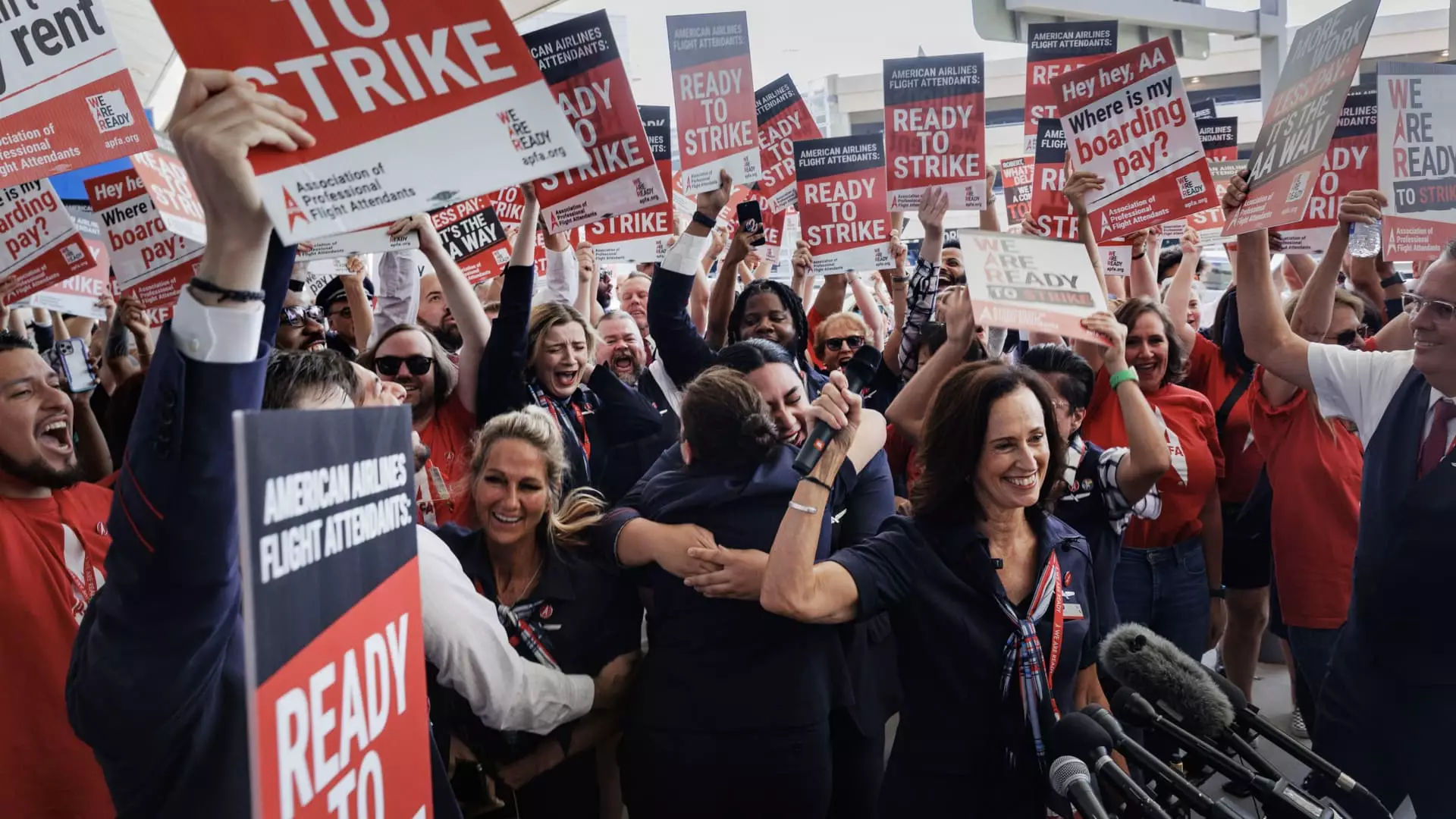In a significant turn of events for labor relations in the airline industry, American Airlines flight attendants have successfully ratified a five-year labor agreement. The contract not only resolves prolonged negotiations but also grants cabin crews an impressive wage increase of up to 20.5%, effective from the beginning of October. This development comes after intense negotiations that have been marred by dissatisfaction and labor strife, marking a crucial moment for the approximately 28,000 members represented by the Association of Professional Flight Attendants (APFA).
According to reports, the vote yielded substantial support, with 87% of participating flight attendants endorsing the contract. Julie Hedrick, the president of the APFA, expressed her satisfaction with the outcome, highlighting that this new agreement not only facilitates immediate pay raises but also incorporates retroactive compensation for the extensive time spent in negotiations. This new deal symbolizes not just a financial uplift but also an acknowledgment of the dedication and resilience of flight attendants amid challenging circumstances precipitated by the COVID-19 pandemic.
With the threat of a strike looming over the airline, the importance of this agreement cannot be overstated. American Airlines leadership, reeling from prior labor disputes, viewed the resolution as a vital step toward stabilizing operations and fostering a collaborative environment. The direct involvement of government officials, including Transportation Secretary Pete Buttigieg and Labor Secretary Julie Su, underscores the high stakes associated with these negotiations. Their participation symbolizes a broader commitment from the federal government to ensure that labor and management reach amicable solutions.
The successful deal at American Airlines stands in stark contrast to the ongoing labor disputes faced by other airlines, notably United Airlines, which continues to negotiate a new contract with its flight attendants. Meanwhile, Alaska Airlines recently encountered turmoil as its cabin crew members rejected a tentative labor deal. The landscape of airline labor relations is fraught with tension, as many airline workers advocate for increased wages and better working conditions in response to a rising cost of living post-pandemic.
The outcomes at American Airlines resonate beyond the confines of the airline industry, reflecting a broader trend of labor empowerment witnessed in various sectors, including automotive and entertainment. The rising demand for fair wages and improved working conditions has to some degree been influenced by successful strikes and negotiations in these industries. For instance, Boeing workers are engaging in contract discussions that could also pivot toward major pay increases. As the labor movement continues to gain momentum across multiple sectors, the agreements reached by American Airlines flight attendants may serve as a precedent for other unions seeking similar accomplishments.
The agreement at American Airlines not only marks a significant victory for flight attendants but also highlights the broader wage and labor struggles unfolding in various sectors. The successful negotiations may represent a turning point, as workers across industries increasingly push for their rights in the face of escalating economic pressures.

